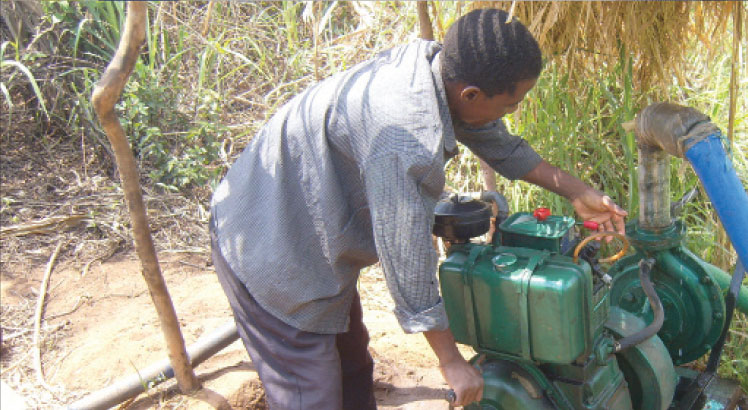Trillions lost
Despite government borrowing trillions to finance the agriculture sector in the past five decades, experts say growth does not match the huge investments.
A public debt status report the Ministry of Finance and Economic Affairs presented in Parliament in 2017 says between 1964 and June 2017 government borrowed about $6 billion (about K6 trillion) from external sources, with a majority of the loans going towards the agriculture sector.
An analysis of the report by the National Smallholder Farmers Association of Malawi (Nasfam) at the time showed that half of the external loans in the previous 10 years had been used for financing the agriculture sector in particular irrigation projects, with no visible improvements.
Minister of Finance and Economic Affairs Sosten Gwengwe, asked to comment on the general performance of loans for the sector passed by the House during the past decade, acknowledged that the country has been obsessed with new investments and that little or no attention has been paid to maintaining such investments.
Said Gwengwe: “Lessons have been learnt. We are now allocating resources for the maintenance of old irrigation schemes even as we do new ones such as the Shire Valley project.”

of his irrigation equipment
Weighing in on the matter, agriculture policy expert Tamani Nkhono-Mvula said the European Union (EU) and the Japanese International Co-operation Agency (Jica) have invested a lot in the irrigation sector.
Said Nkhono-Mvula: “But the problem is that once such programmes end, the government or public institutions do not take over from there.”
According to him, after 1994, care and maintenance of irrigation infrastructure was given less attention while funding food security at the household level became a political tool; hence, no serious investments were done in the irrigation sector over the years.
He argued that instead of investing in irrigation schemes and maintaining the existing ones, successive governments have been concentrating on quick-fix food security programmes such as the Affordable Inputs Programme.
Nkhon-Mvula said such programmes will not lift the poor out of the pit of food insecurity.
The expert pointed out that the country already has institutional frameworks such as the National Irrigation Master Plan (Nimp), and irrigation policies to rejuvenate the sector.
According to Nimp and Investment Framework unveiled in 2015, government needs about $2.4 billion to irrigate about 220 000 hectares (ha) by 2035.
The policymakers envision this investment lessening dependency on rain-fed agriculture amid climate change.
By 2015, only 104 362ha was being utilised in or less than half of the potential irrigable land was being put to productive use.
The Ministry of Agriculture indicates that the figure has slightly risen to 146 966ha for both private estates and smallholder farmers. This means farmland under irrigation has risen by 10 percent in seven years.
According to the 2023 Annual Economic Report issued by the Ministry of Finance and Economic Affairs, the country’s total land developed for irrigation increased by one percent in the 2022/23 financial year, missing by far the five percent growth rate that Nimp and Investment Framework benchmarked.
It reads: “In terms of irrigation development, during the reporting period, the total land developed for irrigation increased by 1 048.2 hectares, which is one percent and is below the 6 percent targeted minimum annual growth rate for the agriculture sector stipulated in the Comprehensive African Agriculture Development Programme.
“This is also below the 5 percent average stipulated in the National Irrigation Master Plan and Investment Framework (2015-2035).”
On its part, the Mwapata Institute, an independent agricultural policy think tank says, among others, there is need to tighten rules and procedures on how huge loans for investments in the agriculture sector are approved in Parliament, so as to maximise gains.
Such approvals, according to the institute, also need to be informed by some empirical evidence of what returns from previous related investments have been and potential gains in increasing agricultural productivity of any future loans.
In an interview on Thursday, Mwapata Institute executive director William Chadza observed that the country has been slow in developing irrigable land, largely relying on multilateral and bilateral partners for financing such developments.
Said Chadza:” This has effectively been mirrored by the chronic food insecurity situation. We have continued to largely rely on rain-fed agriculture that overtime is increasingly being challenged by the frequent domestic weather shocks,
“Hopefully, there could be consideration for policy options to repurpose our agricultural policies and investments to look at agricultural sub-sectors that could bring more returns, like irrigation.”
The sentiments by Chadza, a policy researcher, come at a time the country continues to be subjected to perennial food shortages despite huge investments in the sector, over and above food security programmes such as subsidies.





